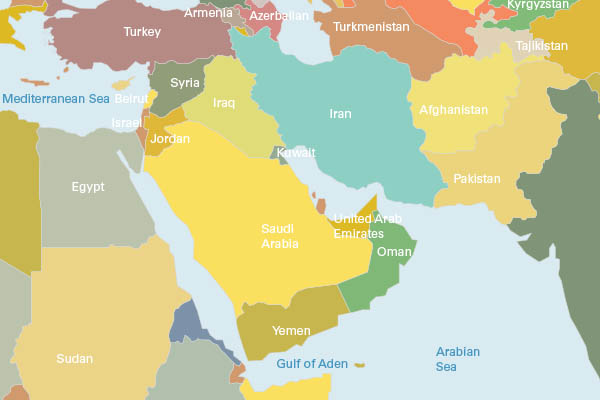Whether Americans see it or not, one thing is sure — Christians are facing persecution in large volumes around the world.
And a second reality follows — no matter what form the persecution takes, Christians have some sort of response, from nonviolent protest to flight to taking up arms.
These responses were studied as part of a collaborative, three-year research project called Under Caesar’s Sword (UCS) and funded by the Templeton Religion Trust. The report, which analyzed data from 25 countries, was released April 20.
The study was conducted for the most part in the 10/40 Window, a term used to refer to the parts of Africa, Asia and Europe located between 10 and 40 degrees north of the equator. However, notably some countries with severe persecution were not included because of lack of access, such as Eritrea, Somalia, Yemen and North Korea.
Though persecution can be hard to measure, it has reached record levels in the past three years, largely because of Islamic extremists and ethnic nationalism, Open Doors reports. And 60 to 80 percent of that persecution falls squarely on Christians, according to UCS researchers, who grouped their response to that persecution into three categories — survival, association and confrontation.
For evangelical Christians, more than 40 percent of responses to persecution fell in the survival category. That can mean “going underground, flight and accommodation to or support for repressive regimes,” according to the report.
For example, in Syria and Iraq, most Christians have fled to escape the Islamic State terror group, which has ravaged their land with attacks and executions.
In Iran and Saudi Arabia, Christians cope by staying quiet about the government and avoid saying anything that might suggest they are not Muslims, according to the report. And Christians in Vietnam and Laos have gone underground to escape jail and torture. Each of these survival responses is intended to save their lives and keep their communities intact, according to the report.
The second response, association, is not as frequent — just shy of 40 percent try this tactic, which is to build ties with others to strengthen your resilience.
Avoiding isolation
According to the report, it’s a viable strategy because isolation can be a major problem for persecuted churches.
Associating with other communities offers support and can unite them to provide social services, something that can help to portray them as a positive presence in the area, the report said.
The third strategy — confrontation — is the least-used one at 19 percent, the report stated. “Christian responses to persecution are almost always nonviolent and, with very few exceptions, do not involve acts of terrorism,” it said.
All three categories of responses have seen success and the responses of Christians under persecution are not limited to these strategies, the report stated. (TAB)
___________________________
For more information or to read the full report, visit ucs.nd.edu/report.






Share with others: